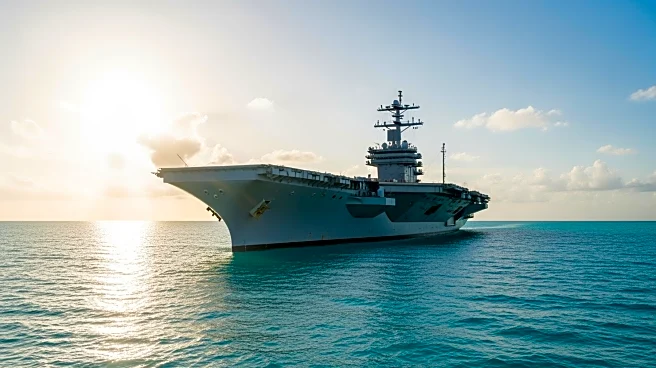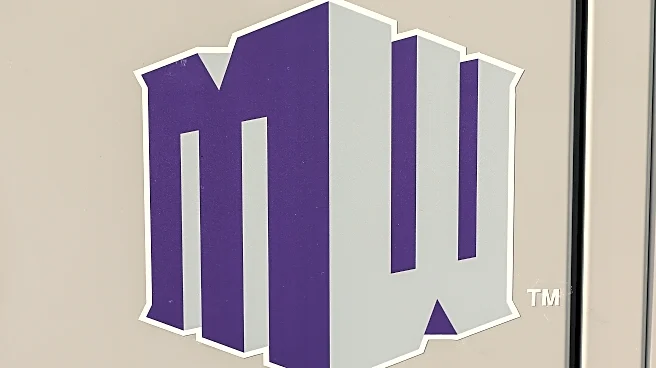What's Happening?
President Trump announced that the US may engage in discussions with Venezuelan President Nicolás Maduro as the USS Gerald R. Ford, the nation's most advanced aircraft carrier, arrives in the Caribbean.
This development is part of a significant military buildup near Venezuela, which the Trump administration claims is aimed at countering drug trafficking. The arrival of the carrier coincides with recent military strikes on vessels suspected of drug transport, although no evidence has been provided to substantiate these claims. The administration's actions have been perceived as pressure tactics against Maduro, with potential diplomatic avenues being explored.
Why It's Important?
The deployment of the USS Gerald R. Ford represents a major escalation in US military presence in the region, potentially impacting US-Venezuela relations and regional stability. The administration's focus on drug interdiction, coupled with the lack of evidence, raises questions about the true motives behind the military buildup. The potential for diplomatic discussions with Maduro could signal a shift in US strategy, offering a chance for de-escalation and dialogue. However, the situation remains tense, with implications for US foreign policy and regional dynamics.
What's Next?
The Trump administration has indicated that military actions may expand to land-based operations, although no legal justification currently supports such actions inside Venezuela. The potential for talks with Maduro could lead to diplomatic breakthroughs or further tensions, depending on the outcomes. The administration's approach will likely continue to face scrutiny from Congress and international observers, influencing future policy decisions. The situation remains fluid, with potential for further military engagements or diplomatic negotiations.
Beyond the Headlines
The military buildup and potential talks with Maduro highlight the complex interplay between military strategy and diplomacy. The situation raises ethical and legal questions about the use of military force in drug interdiction and the classification of individuals as 'narcoterrorists.' The focus on Venezuela, despite its limited role in cocaine trafficking, suggests broader geopolitical motives, potentially affecting regional stability and US-Latin American relations.











